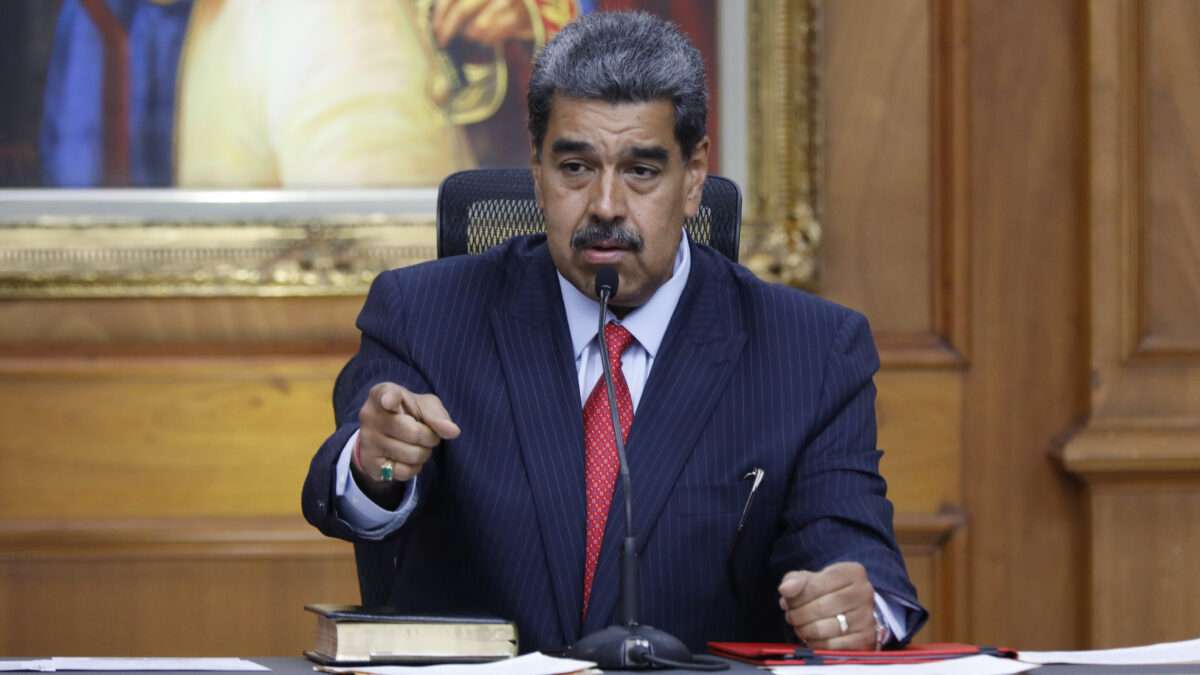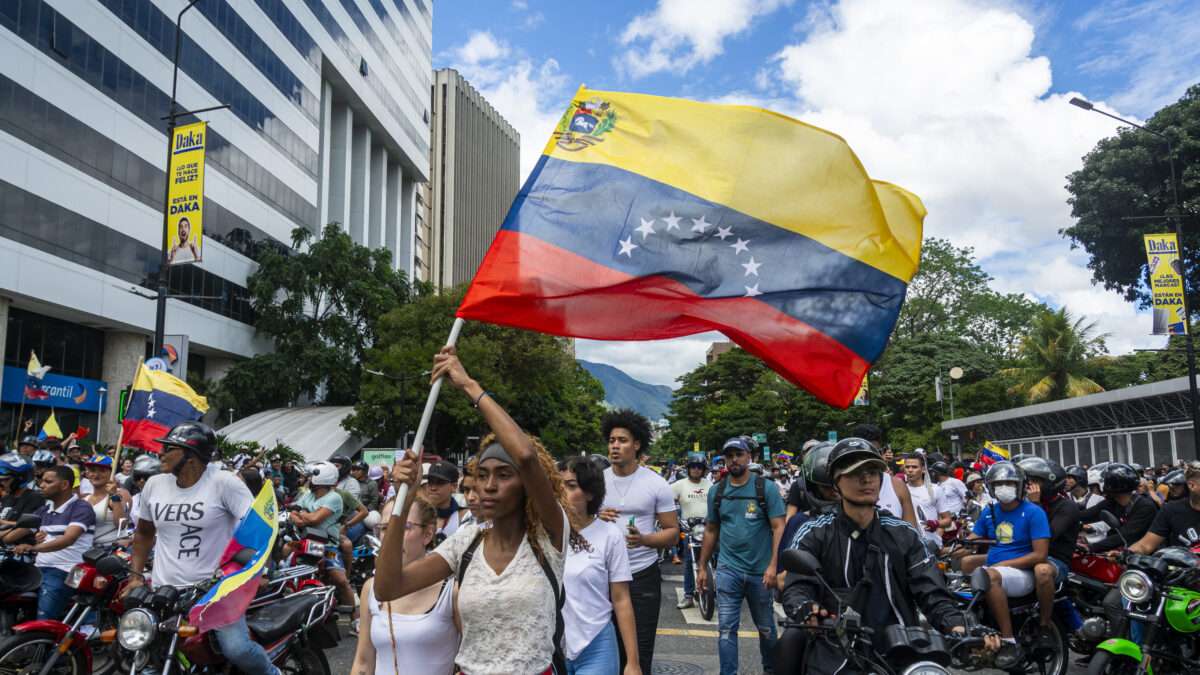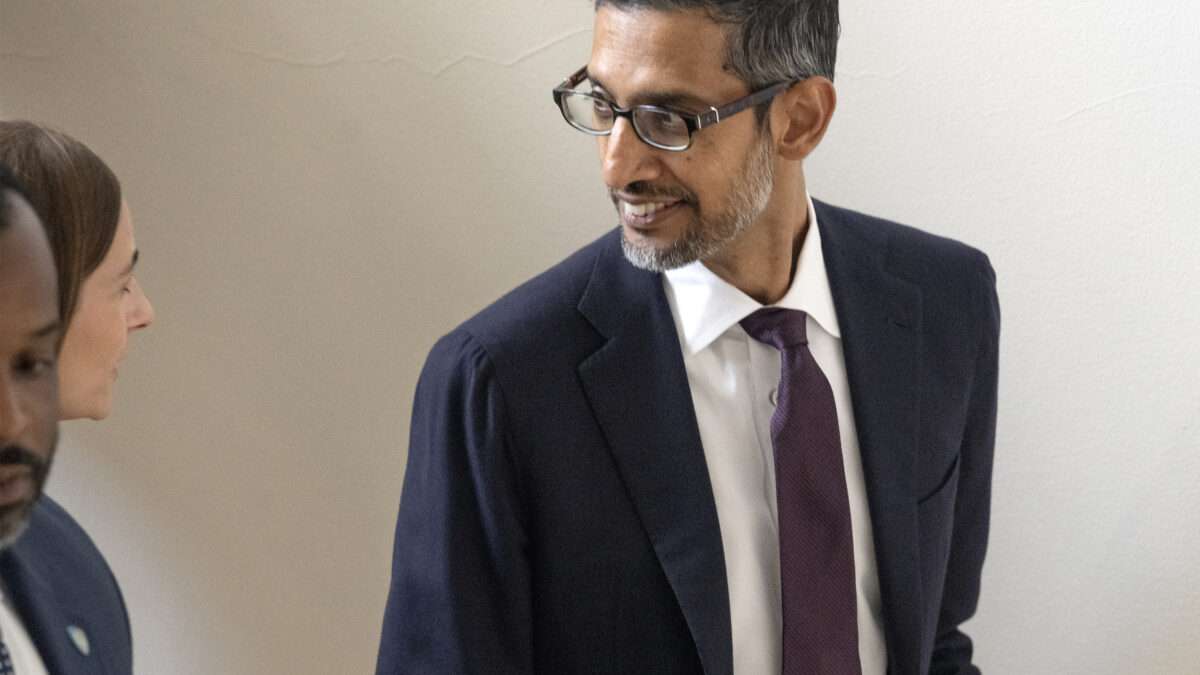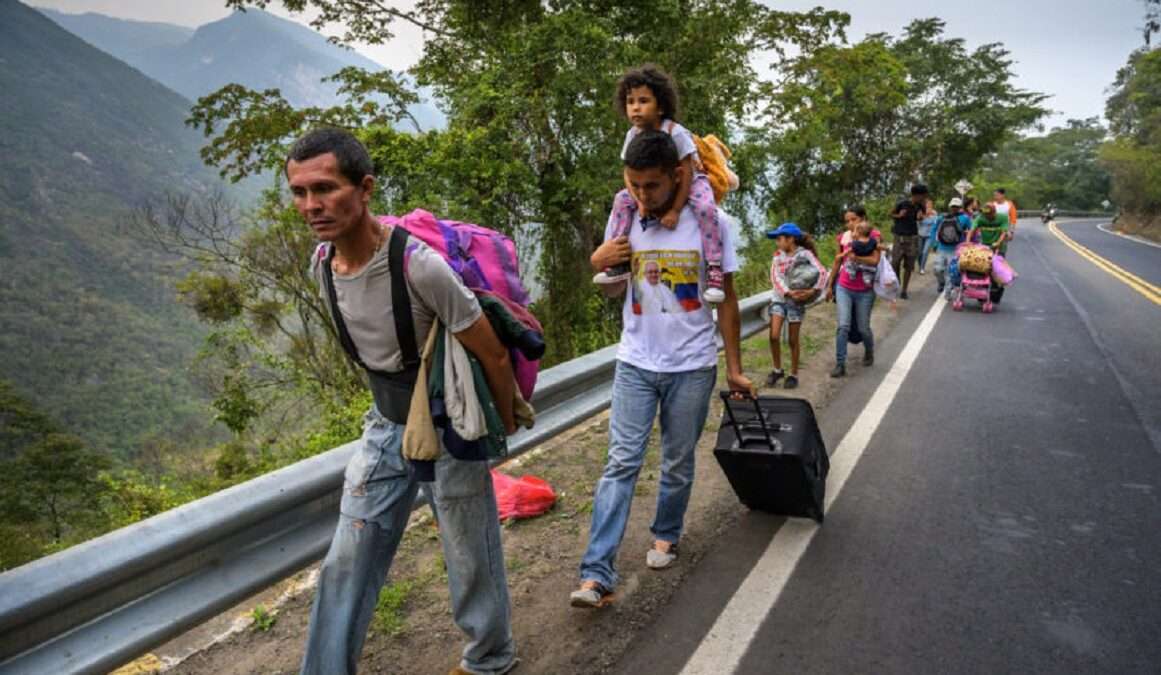Maduro Is Bad for Venezuela and Bad for the U.S.

Despite an authoritarian regime's efforts to obstruct free and fair elections, Venezuelans turned out in large numbers to vote for their president last Sunday, hoping for change amid widespread political repression and a humanitarian crisis. The U.S. is deeply implicated in this turmoil, as the disputed election results underscore significant geopolitical stakes and can have a significant impact on American interests.
A government-controlled electoral commission declared Nicolás Maduro the winner of the election, claiming he received 51 percent of the votes. Yet exit polls and tallies by the opposition indicate that over 70 percent of Venezuelans supported the opposition candidate, Edmundo González.
Governments around the world have denounced the election as fraudulent and demanded evidence of Maduro's claimed victory. Leaders such as Argentine President Javier Milei and Italian Prime Minister Giorgia Meloni have expressed their solidarity with the Venezuelan people's desire for change.
U.S. Secretary of State Antony Blinken has echoed these concerns, claiming that the election results do not reflect the true will of the Venezuelan people. On Thursday, Blinken affirmed that the U.S. recognizes González as the legitimate winner of the Venezuelan elections.
Even left-wing governments like Brazil and Colombia are pressing Maduro to substantiate his claim of victory, but no such proof has emerged. In a bigger turn of events, the Carter Center, one of the few entities invited to observe the Venezuelan election, condemned the electoral commission for its lack of transparency.
Protests erupted nationwide in response to the disputed election, with thousands taking to the streets. Several statues of former socialist president Hugo Chávez were toppled in the unrest. Clashes with security forces have resulted in hundreds of arrests and at least 17 deaths.
Strategic Concerns for the U.S.
Supporting the democratic aspirations of Venezuelans is crucial for U.S. interests. A free Venezuela will address key U.S. policy concerns such as the rise in illegal migration, untapped market opportunities, the growing influence of Iran and China in the region, and security risks for international commerce in the region.
Should Maduro remain in power, migration to the United States from Venezuela is expected to surge. Surveys show that over 40 percent of Venezuelans plan to leave the country if Maduro continues as president. This potential influx of refugees could strain U.S. immigration systems and social infrastructure, posing a major humanitarian and logistical challenge.
American firms will also miss out on substantial business opportunities in Venezuela if Maduro stays in power. The country's vast reserves of oil and uranium represent untapped markets that could enhance U.S. energy security. Investing in Venezuela's oil industry could help diversify energy sources and reduce dependency on unstable or unfriendly regions, leading to more stable energy prices and a reliable supply of oil for the U.S. market.
Maduro's continued rule will also likely increase the presence of U.S. adversaries such as Russia, Iran, and China in the region. Iran plans to expand trade with Venezuela to $20 billion per year, China is heavily investing in the country, and Russia has signed multiple military agreements with the South American country. As Venezuela continues to distance itself from the democratic world, one can only expect these relationships to strengthen. And having a rogue state relatively close to the U.S. border represents security concerns to American businesses and international trade in general.
To address these challenges, American policy makers need to adopt a more strategic approach. The current administration has focused on negotiating sanction relief for the Maduro regime in exchange for promises to hold free and fair elections. But this has proven insufficient, producing no positive changes in Maduro's behavior.
A new foreign policy approach should include a reassessment of institutions such as the United Nations and the Organization of American States. For years, these institutions have systematically failed to uphold the rule of law and human rights in Venezuela. Additionally, U.S. policy makers should establish measures to prevent regimes from exploiting international treaties and cooperation agreements. This includes sectors like finance and energy, where regimes have undermined democratic nations' interests. Finally, the methodology and effectiveness of sanctions should be reassessed. Despite a series of sanctions imposed by the U.S. on countries like Venezuela, Russia, and Iran, the International Monetary Fund projects economic growth for all these nations in 2024.
Failure to address these issues risks empowering autocrats around the world, jeopardizing U.S. national security, economic performance, and diplomatic standing.
The post Maduro Is Bad for Venezuela and Bad for the U.S. appeared first on Reason.com.






